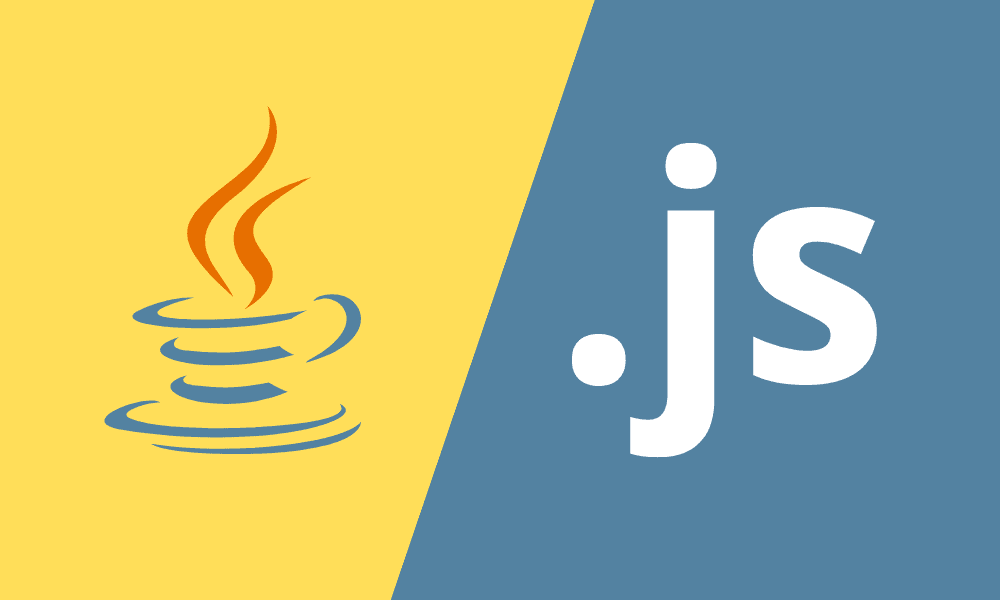New programmers and non-technical people have long mistaken Java and JavaScript, yet the only thing they have in common is the word “Java.” Each is a functional programming language in its own right, with advantages over the other. However, programmers utilize Java and JavaScript for various jobs; thus, one isn’t inherently better.
Both Java and JavaScript are written, built, and executed differently, and they have significant distinctions in what they can do.
Java is utilized in various applications, such as Android apps, credit card programming, and the development of desktop and web enterprise applications. On the other hand, JavaScript is mainly used to make web pages more interactive. Although most programmers will tell you that JavaScript is more popular and has more capabilities than Flash, it can be utilized as an alternative. JavaScript is used to create animation in HTML, for example.
A new programming student will discover that both Java and JavaScript are functional languages in their toolbox. Many programmers and developers believe that studying these two languages back to back, early on, is a sensible decision for a novice programmer. Having Java and JavaScript under one’s belt will undoubtedly increase a programmer’s employability and lead to more lucrative work prospects in the future.
Java
Java is a class-based programming language created by Sun Microsystems. Java is a stand-alone programming language that runs on any platform thanks to the JVM (Java Virtual Machine).
Java has established itself as one of the top programming languages due to its secure environment and high interoperability. Enterprises, too, prefer the language. Java is used by more than 90% of Fortune 500 firms to develop applications and backend systems. It is why, in today’s world, giant corporations use Java developers to create custom-tailored web apps.
The following are some of the most common Java applications:
- Enterprise Software
- Applications of Scientific Computing
- Use for Android Apps
- Java Programming of Hardware Devices for Server-Side Technologies such as Apache, JBoss, GlassFish, and others.
- It also finds a lot of use in Big Data analytics.
JavaScript
JavaScript is an interpreted high-level programming language that aids in developing interactive and responsive online applications. For the ninth year in a row, JavaScript is the most popular language among developers, according to Stack Overflow’s 2021 Developer Survey.
JavaScript, unlike Java, is a straightforward language to learn. As a result, it is widely utilized in web development. Within many sorts of web applications, JavaScript is used with other languages. Here are some of JavaScript’s most valuable applications:
- Single-Page Dynamic Applications (SPAs)
- JavaScript is used in front-end technologies such as jQuery, AngularJS, Ember.js, and ReactJS.
- JavaScript is used in server-side technologies such as Node.js, Express.js, and MongoDB.
- PhoneGap, React Native, and other mobile app development frameworks are used.
What are the similarities and differences between Java and JavaScript?
Before we go into the details of Java vs. JavaScript, let’s have a look at some of the significant commonalities between the two.
Object-Oriented Programming
Object-Oriented Programming (OOP) is a type of programming that uses objects to solve (OOP). Both of these programming languages contain code for generating objects and their interrelationships. In addition, various qualities implanted in these languages, like inheritance, encapsulation, and polymorphism, can be accessed.
Browser-Compatibility
Both Java and JavaScript are browser compatible, which means they can run in the same browser. Because JavaScript is consistent with most modern web browsers, it is a popular choice for web development. On the other hand, Java Applets are also run in a browser. On the other hand, Java Applets are less common due to difficulties with compatibility and security.
Development of the front-end
Did you know that the most common languages for web app development are Java and JavaScript? Java can be used as a Java applet to create appealing front-ends. According to statistics, Java and JavaScript are used by more than 90% of businesses. After being incorporated directly into HTML, JavaScript is utilized as a framework or library for front-end development.
Back-end programming
On the server, both Java and JavaScript are used. Programmers have used Java to support backend technologies, including JBoss, WebSphere, and Apache. Node.js provides the necessary infrastructure for the backend development of JavaScript servers.
What’s the Difference Between Java and JavaScript?
These days, Java vs. JavaScript is a significant issue of debate. Because it is performed on the Java Virtual Machine, Java is a platform-independent Object-Oriented Programming language (JVM). On the other hand, JavaScript is an object-oriented scripting language that aids in creating dynamic HTML pages.
Purpose
While Java is utilized for all server-side development, JavaScript is mainly used for client-side scripts like JS validation and interactivity.
Different applications run in different ways
When discussing Java vs. JavaScript, it’s crucial to understand how these apps work. Applications are written in Java or JavaScript run in quite different ways. Java creates apps that can run in a browser or virtual machine, whereas JavaScript creates applications that can only run in a browser.
Usability
Android applications, desktop application development, and banking and finance app development are examples of where Java applications are used. On the other hand, the use of JavaScript is restricted to making web programs more interactive and creative. It also assists in the creation of HTML animations.
Compilation vs. Interpretation
JavaScript is an interpreted scripting language, whereas Java is a compilation language. Both of these languages work in different ways. JavaScript is evaluated immediately by a browser in its written syntax, whereas Java code is compiled into bytecode and run on the Java Virtual Machine.
Advantages of using Java
Java continues to be a key player in the software development market. The advantages of adopting Java are numerous. Because Java is an object-oriented and class-based general-purpose programming language, it’s a high-level language with multi-threading capabilities. The following are some of the significant benefits that Java provides to its users:
Platform-independent
One of the essential characteristics of Java is that it is platform agnostic. Java allows you to write programs that operate on PCs, mobile devices, and embedded systems. Because the programs are compiled as bytecode, they can run on any platform with a JVM installed. Regardless of the platform, all Java programs are compiled.
Extensible and Dynamic
Java is a dynamic programming language. In Java, all classes, objects, methods, and libraries are dynamically linked. Various functions written in other languages, such as C and C++, are supported by this extensible language.
Multi-Threading
Java is an object-oriented programming language that allows you to do multiple things simultaneously. Java can accomplish various tasks at the same time since it enables multi-threading.
Secure and robust
Java provides a secure environment in which to develop apps. It guards against viral attacks and ensures that resources aren’t wasted. Exception handling is used to eliminate errors and limit the chance of crashing.
The Benefits of Using JavaScript
Both Java and JavaScript offer numerous benefits to consumers. We’ve already explored the advantages of utilizing Java; now, let’s look at the benefits of using JavaScript.
Language for Client-Side Scripting
ASP.NET is a client-side language, unlike its sibling languages like PHP. The JavaScript code on a webpage is automatically processed utilizing the resources available on the user’s system. The complete JavaScript source code is executed in the client’s browser. The code is processed without using a server-side browser.
Effective frameworks
Several sophisticated and robust frameworks are available in JavaScript to aid in the development process. The framework provides ready-to-use code that is simple to debug. Users can gain access to various features that make your web app more engaging by using these frameworks.
Features of Procedural Programming
JavaScript allows users to create more creative web apps by employing procedure-based features. JavaScript is a popular programming language because of its remarkable ability to create loops and branches.
Concurrency
JavaScript aids in the simultaneous execution of multiple tasks. In JavaScript, coders can use a single thread to perform numerous operations simultaneously, saving time by avoiding redundant programming.
Conclusion
After reading this article on Java versus JavaScript, you will better understand both significant languages that have changed the app development business. While Java makes your program more safe and resilient, JavaScript improves the app’s look and feel.
By now, you should be able to tell whether you should design your next app in Java or JavaScript. In a nutshell, Java is generally utilized for all server-side development, whereas JavaScript is reserved for building client-side scripts for features such as validation and interactivity. There are a few other significant differences:
- JavaScript code is all-text, and Java code is compiled.
- Java is an object-oriented programming (OOP) language, while JavaScript is a scripting language for OOP.
- Each language requires specific plug-ins.
- JavaScript code is run on a browser solely, but Java produces apps that run in a virtual machine or browser.







